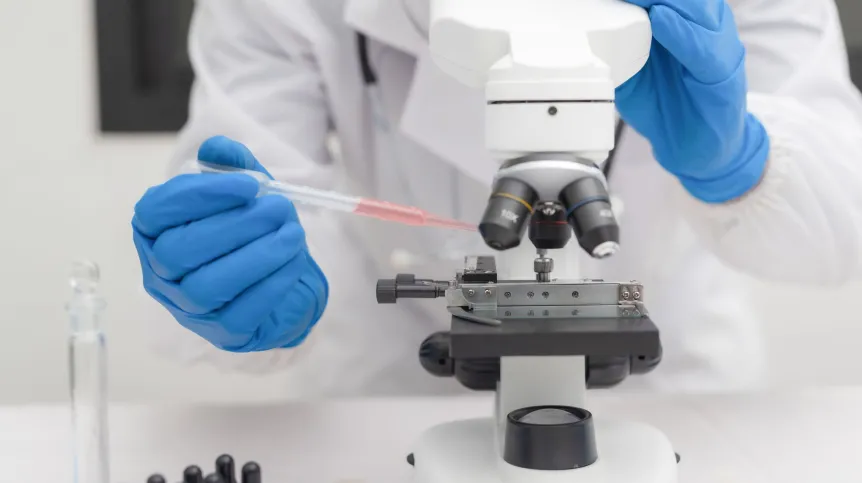
The US Food and Drug Administration (FDA) has granted Orphan Drug status to a compound developed by specialists from the Jagiellonian University Medical College in Kraków. This means that it may be given preferential treatment in further studies.
The molecule designated iQ-007 was developed by the team led by Professor Krzysztof Kamiński from the Faculty of Pharmacy of the Jagiellonian University Medical College. So far, it has passed pre-clinical phase carried out by iQure Pharma Inc. in collaboration with scientists from the Jagiellonian University Medical College. Key experiments have shown its potential effectiveness in the treatment of Dravet syndrome (a rare and severe genetic epileptic encephalopathy).
According to the release sent to PAP, if confirmed by further, clinical trials involving patients, it could be the first in its class candidate for a new generation of antiepileptic drug. An orphan drug is a preparation intended to treat very rare conditions affecting fewer than 5 in 10,000 people, and manufactured by the pharmaceutical industry for reasons of public health rather than financial gain.
'If iQ-007 is introduced to the American market, its status as an Orphan Drug may result in the FDA actively engaging in its clinical trials, thereby significantly shortening the subsequent stages of its development, facilitating its evaluation and registration, and providing a longer period of patent protection as well as extended exclusive sales rights', we read in the release published on the university's website.
Dravet syndrome most often manifests around the first year of life, but sometimes even in infants. It is caused by a mutation of the SCN1A encoding neuronal voltage-gated sodium channel Nav1. The seizures happen frequently and are often hard to prevent with medication, resulting in serious impairment of psychomotor skills. It is estimated that 15-20% of people suffering from this progressive disease die as a result of severe seizures and related trauma.
'Seeing how difficult this disease is to treat, and how irreversible are its effects on children's development, there is a constant need for new, more effective and more tolerable drugs for the treatment of Dravet syndrome. The innovative mechanisms of iQ-007 and previously obtained results show its usefulness in treating Dravet syndrome. Additionally, its high tolerability, particularly lack of drowsiness, stupor and memory impairment give us hope for finding safe and effective ways to treat other kinds of seizures in children', explains Professor Krzysztof Kamiński.
According to specialists from the Jagiellonian University Medical College, iQ-007 has a unique mechanism of action, previously not found in anti-seizure medications, which is based on removing excess glutamate serving as a main stimulating neurotransmitter in the central nervous system. Excess of glutamate in the brain causes many neurological, neurodegenerative and psychiatric illnesses. Reducing its levels may prove to become an innovative therapeutic approach to many conditions, such as Alzheimer's, Parkinson's, Huntington's, MS, ALS, ischaemic strokes, pain, schizophrenia, phobias, autism, and addictions.
In 2020, the compound was commercialised by the Jagiellonian University via the Centre for Technology Transfer CITTRU, and the licence was granted to iQure Pharma Inc. The pre-clinical phase was carried out by the company's R&D department in collaboration with researchers form the Jagiellonian University Medical College. Key experiments confirming the potential effectiveness of iQ-007 in the treatment of Dravet syndrome were financed by Venture Funding private capital acquired by iQure from the USA, Germany and Great Britain.
The US Food and Drug Administration is part of the United States Department of Health and Human Services. It is tasked with supervising the safety of food, dietary supplements, drugs, cosmetics, medical equipment, etc. FDA is known for its strict regulations and requirements for authorisation of drugs for marketing. (PAP)
zbw/ agt/













